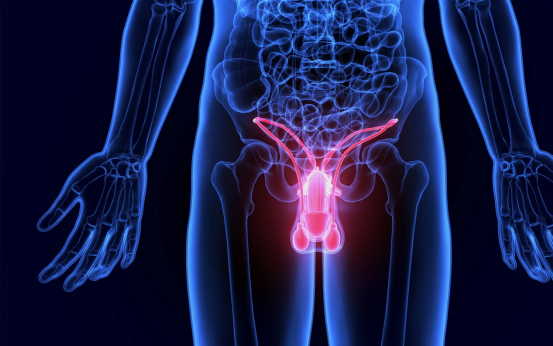Understanding Erectile Dysfunction
Erectile dysfunction (ED), a medical condition that casts a wide net over millions of men around the globe, presents a complex challenge that extends far beyond the physical realm. It not only causes difficulties in achieving or maintaining an erection suitable for sexual intercourse but also has profound psychological and emotional consequences that can significantly impact a man's quality of life. Truly understanding the causes, symptoms, and treatment options for ED is of utmost importance for effectively managing this condition and enhancing overall well-being.
In this comprehensive article, we will take a deep dive into the crucial aspects of erectile dysfunction. We will start by shedding light on what exactly erectile dysfunction is. Erectile dysfunction, also known as impotence, is the inability to achieve or maintain an erection firm enough for sexual intercourse. It is a common condition that can occur sporadically in many men, especially when they are under stress or in anxiety-inducing situations. However, when it becomes a recurring problem, it is rightfully classified as a medical condition. ED often serves as a red flag for an underlying health issue or could be an indication of emotional or psychological stress. The severity of the condition can vary greatly, with some men experiencing occasional difficulties while others face ongoing and persistent challenges.

Causes of Erectile Dysfunction
ED can stem from a diverse array of factors, encompassing both physical and psychological aspects. The causes can generally be categorized as follows:
Physical Causes
Cardiovascular Diseases: Poor blood flow, high blood pressure, and heart conditions are among the leading physical culprits behind ED. Plaque buildup in arteries, known as atherosclerosis, can severely restrict blood flow to the penis, making it extremely difficult to achieve an erection. For instance, a man with a history of heart disease may find that his compromised cardiovascular system is unable to supply sufficient blood to the penis during sexual arousal.
Diabetes: Men with diabetes, particularly those with uncontrolled blood sugar levels, are at a significantly higher risk of developing ED. This is due to nerve damage and blood flow issues that often accompany diabetes. The high sugar levels can damage the nerves and blood vessels, affecting the signals and blood supply necessary for a proper erection.
Obesity: Excess body weight, especially when concentrated around the abdomen, is associated with decreased testosterone levels and impaired blood circulation. Both of these factors can contribute to the development of ED. A person with obesity may have a higher risk of developing metabolic syndrome, which can further exacerbate the problem.
Medications: Certain medications can cause ED as a side effect. This includes medications for high blood pressure, depression, or prostate conditions. For example, some blood pressure medications may interfere with the body's ability to achieve an erection by affecting blood flow or nerve signals. Additionally, medications like the Kesimpta injection, which is primarily used in autoimmune diseases, may also be related to sexual dysfunction.
Neurological Disorders: Conditions such as multiple sclerosis, Parkinson's disease, and spinal injuries can have a significant impact on nerve signals to the penis, leading to erectile issues. In these cases, the damage to the nervous system can disrupt the normal communication between the brain and the penis, making it difficult to achieve or maintain an erection.

Psychological Causes
Anxiety and Stress: Performance anxiety, work-related stress, or relationship problems can all contribute to ED. This often creates a vicious cycle where the fear of failure leads to increased erectile difficulties, which in turn heightens the anxiety even further. For example, a man who is worried about performing well in bed may experience stress that interferes with his ability to achieve an erection, and this failure can then lead to more anxiety in future sexual encounters.
Depression: Men suffering from depression often lose interest in sexual activities. Additionally, antidepressants may also impact sexual performance. Depression can affect a person's libido and overall motivation for sexual activity. Moreover, some antidepressant medications can have side effects that include erectile dysfunction.
Low Self-Esteem: Feelings of inadequacy, especially after an episode of ED, can lead to further psychological issues and exacerbate the condition. A man who experiences ED may start to question his masculinity and self-worth, which can then create more stress and anxiety, making the problem worse.

Symptoms of Erectile Dysfunction
The primary symptom of ED is the consistent inability to achieve or maintain an erection. However, there are other associated symptoms that may also be present. These can include:
Reduced sexual desire or libido: A decrease in sexual interest or drive is often a sign that something is amiss. This can be caused by a variety of factors, including psychological stress, hormonal imbalances, or underlying medical conditions.
Difficulty achieving an erection even after sexual stimulation: Even with proper stimulation, a man with ED may struggle to achieve an erection. This can be frustrating and can lead to a sense of disappointment and worry.
Trouble maintaining an erection throughout intercourse: Once an erection is achieved, some men with ED may have difficulty maintaining it for the duration of sexual intercourse. This can disrupt the sexual experience and cause distress for both partners.
Symptoms can also have a significant impact on emotional health, leading to frustration, embarrassment, and low self-esteem. These emotional responses can further worsen the problem, creating a cycle of negative emotions and sexual difficulties.
Diagnosis of Erectile Dysfunction
When diagnosing ED, doctors typically begin with a comprehensive medical history and physical examination. The patient's psychological and emotional health is also evaluated, as these factors can often play a crucial role. Common diagnostic tools include:
Blood Tests: To detect underlying conditions like diabetes or heart disease. Blood tests can measure hormone levels, blood sugar levels, and cholesterol levels, among other things. These tests can help identify any potential medical issues that may be contributing to ED.
Urinalysis: To check for signs of diabetes and other potential health problems. Urinalysis can detect the presence of sugar, protein, or other substances that may indicate an underlying medical condition.
Ultrasound: Used to examine the blood flow to the penis. An ultrasound can provide a detailed view of the blood vessels in the penis and help determine if there are any blockages or other issues affecting blood flow.
Psychological Assessment: To determine if stress, depression, or anxiety contributes to the condition. A psychological assessment can involve questionnaires, interviews, or referrals to a mental health professional. This can help identify any emotional or psychological factors that may be contributing to ED.
Treatment Options for Erectile Dysfunction
Treatment options for ED vary depending on the underlying causes. These treatments range from lifestyle changes and medications to more advanced medical interventions.
Lifestyle Changes
Adopting healthier lifestyle habits can have a significant impact on erectile function. Key lifestyle changes include:
Exercise: Regular physical activity is essential for improving cardiovascular health, boosting blood flow, and helping to regulate weight. For example, engaging in aerobic exercises like running, swimming, or cycling can improve heart function and increase blood circulation throughout the body, including to the penis. Resistance training can also help build muscle mass and increase testosterone levels.
Diet: A heart-healthy diet rich in fruits, vegetables, and whole grains can reduce the risk of conditions like diabetes and high cholesterol that lead to ED. Avoiding processed foods, excessive sugar, and saturated fats can also help maintain a healthy weight and improve overall health.
Stress Management: Practices such as mindfulness, meditation, or therapy can reduce anxiety levels, which often worsen ED. Stress can have a significant impact on sexual function, so finding effective ways to manage stress is crucial. This can include activities like yoga, deep breathing exercises, or spending time in nature.

Medications
Several FDA-approved medications are commonly prescribed for ED, including:
PDE5 Inhibitors: These include Viagra (sildenafil), Cialis (tadalafil), and Levitra (vardenafil). They work by increasing blood flow to the penis during sexual stimulation. These medications are effective for many men with ED and are relatively safe when used as prescribed.
Kesimpta (Ofatumumab): Primarily used for treating autoimmune conditions, this drug is linked with addressing certain nerve-related dysfunctions. Although not typically the first choice for ED treatment, it may be considered in cases where there is an underlying autoimmune issue contributing to the problem.
Roflumilast Cream 0.3: Though mainly used to treat skin conditions like psoriasis, the systemic benefits of such medications can sometimes support better blood flow, indirectly aiding in the management of ED. While not a direct treatment for ED, it may have positive effects on overall health and blood circulation.
Therapy and Counseling
Psychological counseling or therapy is highly recommended when ED has a mental or emotional component. Cognitive behavioral therapy (CBT) is particularly effective in addressing anxiety and depression-related ED. Therapy can help a person identify and address the root causes of their stress and anxiety, develop coping strategies, and improve their self-esteem and body image.
Vacuum Devices and Implants
Vacuum Devices: These devices create a vacuum around the penis, drawing blood into it to induce an erection. Vacuum devices can be a useful option for some men, but they may require some practice and can be less convenient than other treatment methods.
Penile Implants: In severe cases where other treatments are ineffective, penile implants or surgery may be considered as a last resort. Penile implants are a more invasive option and should only be considered after other treatments have been exhausted.
The Role of New Innovations: Ed Near Me & Arcutis FDA Approval
Recent innovations in ED treatment have focused on more personalized care. For instance, the ability to search for ED specialists near you using online platforms ensures quicker access to treatment. This can be extremely beneficial for men who may be hesitant to seek help or who live in areas with limited access to specialized care. Moreover, advancements like Arcutis' FDA approval for drugs targeting specific skin and autoimmune conditions highlight the interplay between systemic health and sexual function. As our understanding of the body's interconnected systems grows, we are likely to see more innovative treatments that address the root causes of ED.
Success Stories: Men Who Overcame ED
Many well-known figures have successfully managed their erectile dysfunction. For example, celebrities like former U.S. Senator Bob Dole openly discussed his experience with ED, which helped destigmatize the condition and highlight that solutions are available. Hearing these success stories can be inspiring for men who are struggling with ED and can give them hope that they too can overcome this challenge.

Taking Control of Your Sexual Health
Managing erectile dysfunction is not just about restoring sexual performance; it's about addressing overall physical and emotional well-being. With the variety of treatments now available, including new medications and lifestyle interventions, many men can regain confidence and improve their quality of life. The key is to seek professional help and recognize that ED is a common and treatable condition. By understanding the causes, symptoms, and treatment options, men can make informed decisions about their health, fostering better outcomes and stronger relationships.



